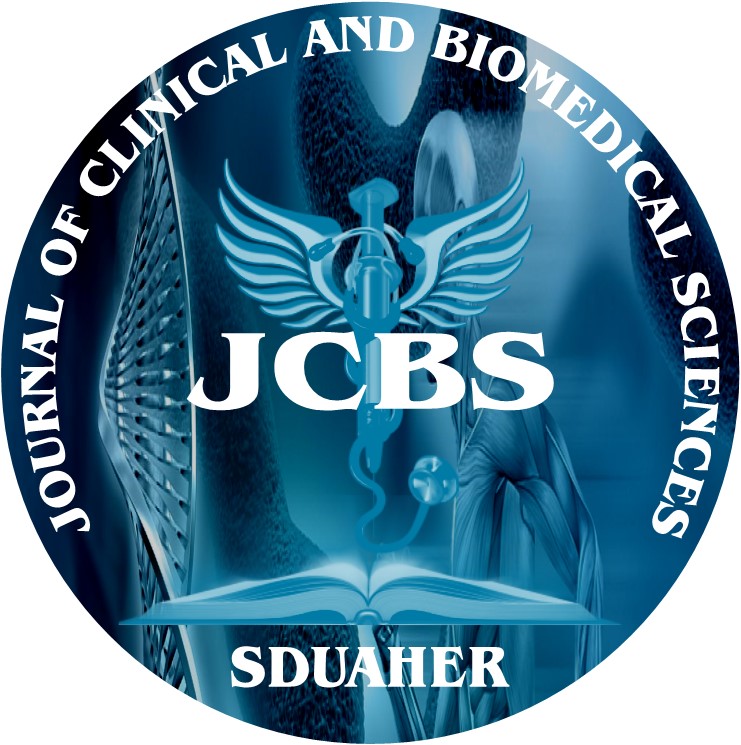


Journal of Clinical and Biomedical Sciences
Year: 2015, Volume: 5, Issue: 1, Pages: 21-24
Original Article
Qulsoom Naz1, M Serajuddin2 , N S Verma*3, A Ali Mehdi4 ,M L Patel 5
1. M.Sc
2. Ph.D, Dept. of Zoology, University of Lucknow, U.P, India.
3. Professor, Dept. of Physiology,
4. Ph.D, Dept. of Biochemistry,
5. MD, Dept. of Medicine, King George Medical University, Lucknow, U.P, India..
*Corresponding Author
E-mail : [email protected]
Objective: To evaluate the lipid profile and Electrolyte levels (Sodium and Potassium in Serum and Urine) in Essential Hypertensives and in healthy controls in North Indian Population. Materials and Methods: A total of 166 age and sex matched essential hypertensivs and healthy controls were included in our study from outpatient department (OPD) of Medicine in King George Medical University, Lucknow, India. First group consisting of 91 subjects were Known E. hypertensive patients (B.P ≤ 139/89mm of Hg). Another group consisting of 75 subjects were healthy controls (B.P ≤ 120/80mm of Hg) with no history of hypertension. Fasting venous blood sample was collected from all the subjects in plain vacutainers and the sample was centrifuged for the estimation of lipid profile and Serum Sodium (Na+) & Potassium (K+). Lipid profile was measured with an automated analyzer (Biochem) and Electrolytes was measured using ion-selective electrolyte auto-analyzer in the Clinical lab of biochemistry in KGMU. Results: Most of the control subjects had normal lipid profile levels. In patients with E. hypertension there was a highly significant increase in serum total Cholesterol (216.1 + 2.77 – 150.6 + 1.183, p˂0.0001), LDL Cholesterol (81.22 + 0.483 – 67.94 + 1.081, p˂0.0001) and Triglycerides (172.9 + 1.094 – 86.07 + 0.963, p˂0.001). HDL Cholesterol (43.76 + 0.49 – 49.25 + 1.204, p˂0.0001) is also significant reduced as compared to controls. No significant difference was found in serum Na+ and K+ level. The Urinary Na+ (87.78 + 1.307 – 125.1 + 1.55, p˂0.0001) levels were significantly lower in E. hypertensive patients when compared to controls while differences in Urinary K+ levels were not significant. Conclusion: We conclude that dyslipidemia is associated with essential hypertension and this may due to the genetic predisposition, sedentary lifestyles and fatty food consumption. Saturated fat and cholesterol in the food increase the blood cholesterol and saturated fat is the main culprit. Key Words- Essential Hypertension, Cardiovascular disease, Cholesterol
Subscribe now for latest articles and news.